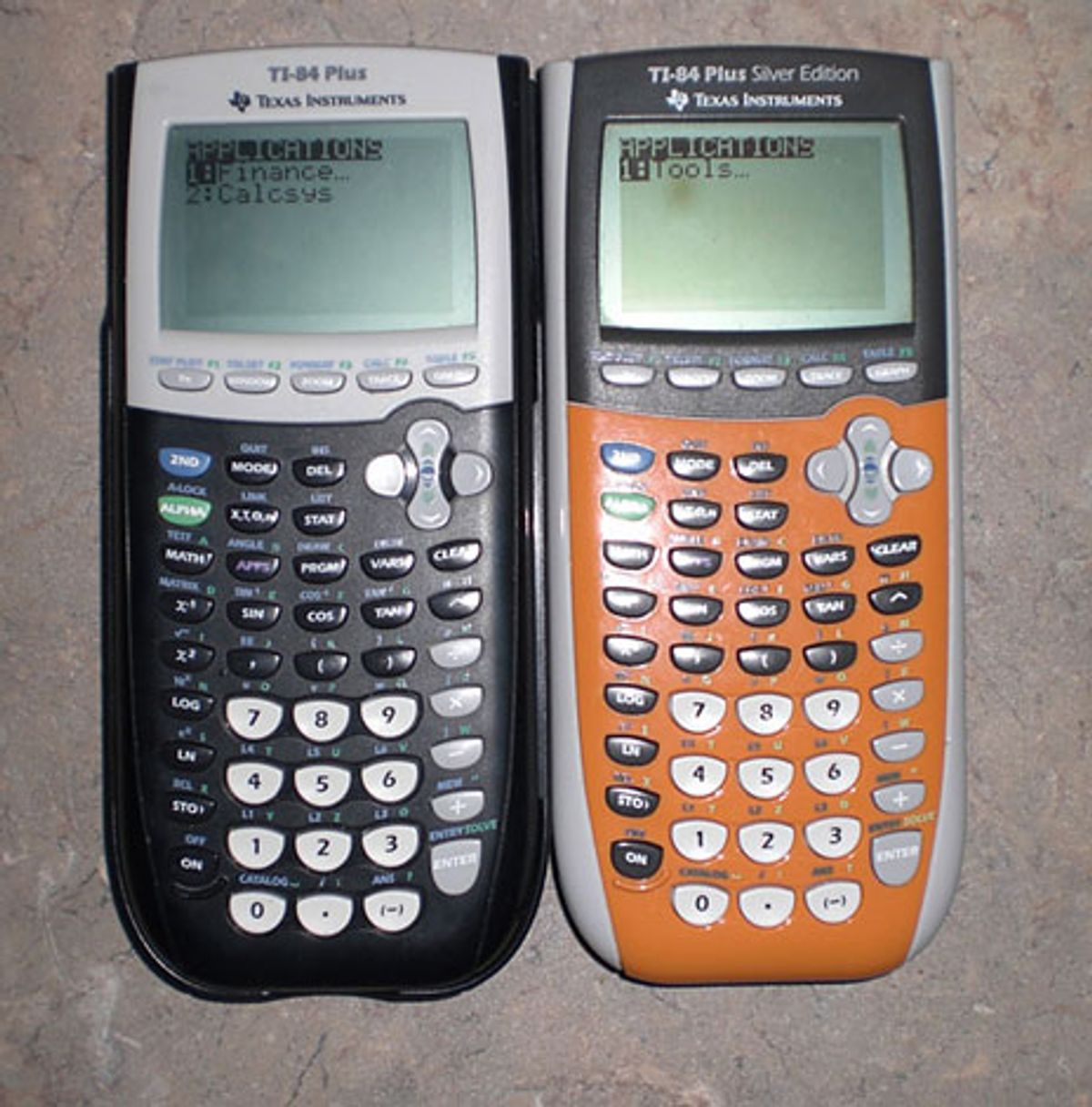28 October 2009—In August, Brandon Wilson, a 25-year-old programmer in Johnson City, Tenn., posted a giddy new blog entry on his personal home page. “83+ OS signing key cracked!” his headline read.
Wilson is a calculator hacker, and for geeks like him, the news was big. The signing key is a security code that, when unlocked, allows hackers to put their own operating systems on a Texas Instruments TI-83 Plus graphing calculator. While most people picture hackers tinkering with PCs or video games, Wilson belongs to an engineering subculture that is less known but equally passionate. Calculator hackers code games and even get USB peripherals running on their machines. “I reached a point where I could understand all there was to understand about this device,” says Wilson. “That’s a rewarding feeling. You can try to do that on a computer, but you’ll never get there.”
There’s one problem: Texas Instruments doesn’t want hackers modifying their calculators. Shortly after Wilson uploaded his post, TI insisted he take down the links from his site leading to the signing key. Wilson reluctantly complied, but the incident raises compelling questions about the boundaries of innovation and collaboration online.
Wilson is among several calculator hackers who have received a cease-and-desist letter from TI for violating the anticircumvention provisions of the Digital Millennium Copyright Act (DMCA). “The TI-83 Plus operating system uses encryption to effectively control access to the operating system code and to protect its rights as a copyright owner in that code,” wrote Herbert W. Foster, manager of business services for TI’s Education Technology Group, in the letter. “Unauthorized use of these files is strictly prohibited.”
On behalf of Wilson and the other hobbyists, the Electronic Frontier Foundation (EFF), a nonprofit advocacy group based in San Francisco, fired back at TI over what it calls “baseless legal threats [that] squash free speech and innovation.” Jennifer Stisa Granick, civil liberties director for the EFF, argues that calculator hackers do not violate the DMCA. The DMCA protects a user’s right to reverse engineer hardware in order to run homebrew operating systems or other programs. Furthermore, the EFF contends, Texas Instruments makes its software available online, so the release of the signing keys does not contribute to unauthorized distribution.
The importance of the case goes beyond calculator hobbyists and illustrates a rising trend—consumers’ desire to customize the many gadgets in their everyday lives. “What we’re seeing is a real push on the part of consumers—that they want to open up their devices and have a robust marketplace for code to run on these devices,” Granick says. Duncan Smith, a University of Washington student who also received a letter from TI, thinks hacking is a way to improve the performance of the machines. “There’s a general consensus in the TI programming community that we’ve gone about as far as we can if we’re going to keep using TIOS,” he says [TIOS is what hackers call TI's operating system]. “There are many places in TIOS where the code is simply horrible.”

Tom Cross, a security technology researcher in Atlanta, received a cease-and-desist letter from TI after merely posting about the hackers on his blog, Memestreams.net. “I didn’t include the key in my post,” he says. “I linked to a discussion forum where this was being talked about.” Cross took down his link, but not without feeling burned. “It’s incumbent on Texas Instruments to be responsible with its power,” he says, “and I don’t think they were responsible.”
Lynn Windle, media relations manager for Texas Instruments, declined to comment on the case. “I’d like to refer you to our DMCA take-down notice,” she says. “It lays out our position in this matter, and we have nothing more to add at this time.”
But while the signing keys are gone, the modding continues. Despite the TI-83 Plus’s limited specifications—a Z80 processor running at 6 megahertz, 24 kilobytes of main memory, 160 KB of flash memory, and a 96- by 64-pixel display—calculator hackers are cooking up new homebrewed solutions. Wilson is continuing work on his own pet project, an operating system written in assembly language. “I would like to be left alone and not afraid of being sued just for wanting to do something with my own hardware,” he says.
About the Author
Contributing Editor David Kushner is the author of Masters of Doom (2003), Jonny Magic and the Card Shark Kids (2005), and Levittown: Two Families, One Tycoon, and the Fight for Civil Rights in America’s Legendary Suburb (2009). He wrote IEEE Spectrum’s September cover story, “The Making of The Beatles: Rock Band.”
David Kushner is the author of many books, including Masters of Doom, Jonny Magic & the Card Shark Kids, Levittown, The Bones of Marianna, and Alligator Candy. A contributing editor of Rolling Stone, he has written for publications including The New Yorker, Vanity Fair, Wired, and The New York Times Magazine.


